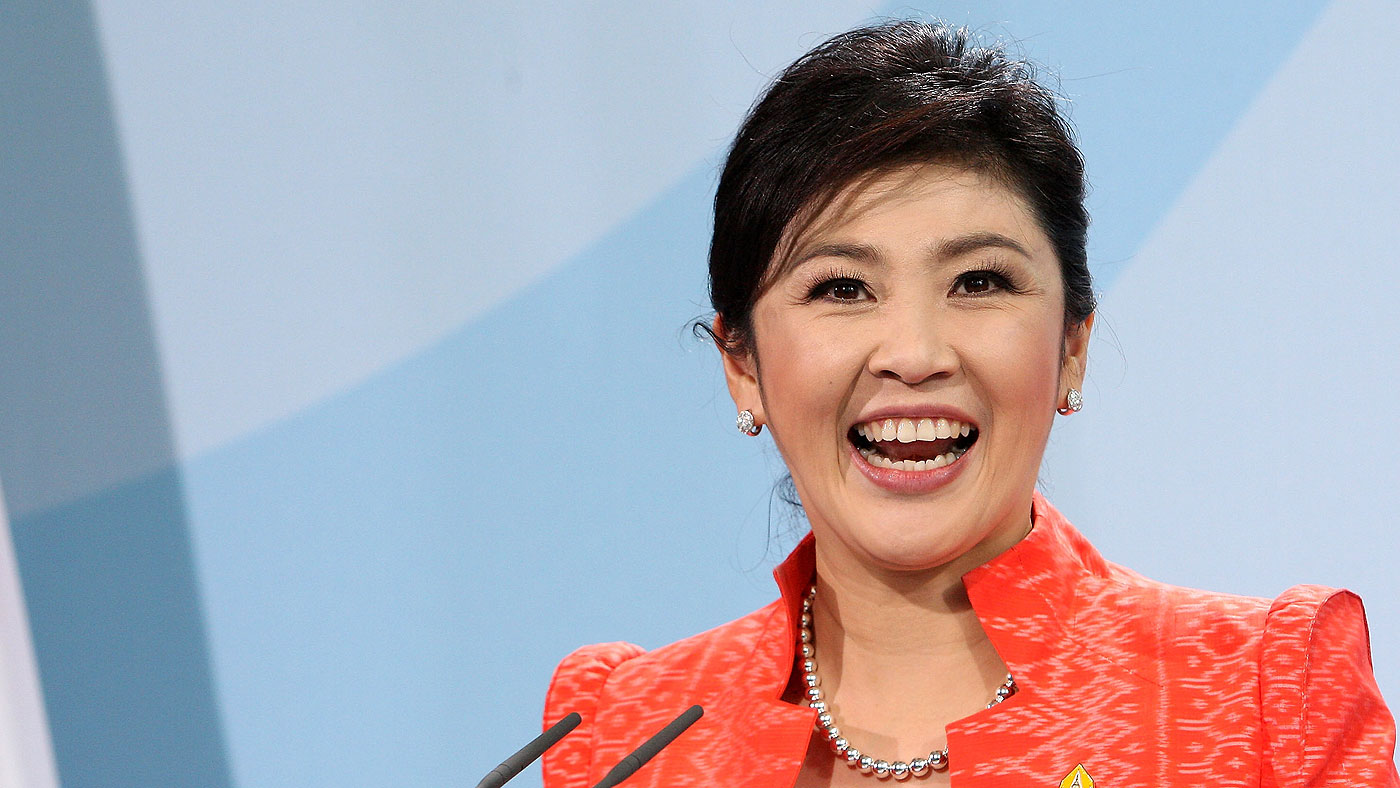Thailand tense on eve of Shinawatra verdict
The former prime minister faces ten years in prison, but are the charges political?

A free daily email with the biggest news stories of the day – and the best features from TheWeek.com
You are now subscribed
Your newsletter sign-up was successful
Thailand and its former prime minister, Yingluck Shinawatra, are awaiting a Supreme Court verdict that could send her to prison for ten years and have a profound effect on the future of Thai politics.
Shinawatra is accused of negligence in implementing a rice subsidy programme that by some estimates cost the Thai government as much as $17bn (£13bn). The verdict is due tomorrow.
"An essential part of Ms Yingluck's winning manifesto was a generous promise to rice farmers," says the BBC. "That is at the heart of the legal case against her,"
The Week
Escape your echo chamber. Get the facts behind the news, plus analysis from multiple perspectives.

Sign up for The Week's Free Newsletters
From our morning news briefing to a weekly Good News Newsletter, get the best of The Week delivered directly to your inbox.
From our morning news briefing to a weekly Good News Newsletter, get the best of The Week delivered directly to your inbox.
Under her programme, the government was to buy the entire rice crop, paying above the price guaranteed under the previous government. Farmers were happy but economists and experts questioned the scheme's viability. When the programme proved unsustainable, corruption allegations followed.
However, the case against Yingluck is seen by many in Thailand as political rather than judicial, says the Chicago Tribune.
She herself has described the case as a "political game", saying the military wish to crush the family dynasty, having ousted her brother Thaksin as Prime Minister in 2006. In 2014, Yingluck's government was also ousted in a military coup.
If she is found guilty, the military will have to deal with what comes next. "Any imprisonment of Yingluck would not be good for the image of the ruling National Council for Peace and Order," The Nation website reports. "Her imprisonment would make her a more sympathetic figure and could elevate her to the status of a 'democracy icon'," much like Burma's Aung San Suu Kyi.
A free daily email with the biggest news stories of the day – and the best features from TheWeek.com
A guilty verdict might also be used by Yingluck’s Pheu Thai Party to draw support ahead of the 2018 general election.
On the other hand, if the court dismisses the case against Shinawatra, "pressure from the anti-Thaksin camp will mount on the NCPO while it will be highlighted by the Pheu Thai in the run-up to the next general election," The Nation says.
-
 Switzerland could vote to cap its population
Switzerland could vote to cap its populationUnder the Radar Swiss People’s Party proposes referendum on radical anti-immigration measure to limit residents to 10 million
-
 Political cartoons for February 15
Political cartoons for February 15Cartoons Sunday's political cartoons include political ventriloquism, Europe in the middle, and more
-
 The broken water companies failing England and Wales
The broken water companies failing England and WalesExplainer With rising bills, deteriorating river health and a lack of investment, regulators face an uphill battle to stabilise the industry
-
 Epstein files topple law CEO, roil UK government
Epstein files topple law CEO, roil UK governmentSpeed Read Peter Mandelson, Britain’s former ambassador to the US, is caught up in the scandal
-
 Iran and US prepare to meet after skirmishes
Iran and US prepare to meet after skirmishesSpeed Read The incident comes amid heightened tensions in the Middle East
-
 Israel retrieves final hostage’s body from Gaza
Israel retrieves final hostage’s body from GazaSpeed Read The 24-year-old police officer was killed during the initial Hamas attack
-
 China’s Xi targets top general in growing purge
China’s Xi targets top general in growing purgeSpeed Read Zhang Youxia is being investigated over ‘grave violations’ of the law
-
 Panama and Canada are negotiating over a crucial copper mine
Panama and Canada are negotiating over a crucial copper mineIn the Spotlight Panama is set to make a final decision on the mine this summer
-
 Why Greenland’s natural resources are nearly impossible to mine
Why Greenland’s natural resources are nearly impossible to mineThe Explainer The country’s natural landscape makes the task extremely difficult
-
 Iran cuts internet as protests escalate
Iran cuts internet as protests escalateSpeed Reada Government buildings across the country have been set on fire
-
 US nabs ‘shadow’ tanker claimed by Russia
US nabs ‘shadow’ tanker claimed by RussiaSpeed Read The ship was one of two vessels seized by the US military